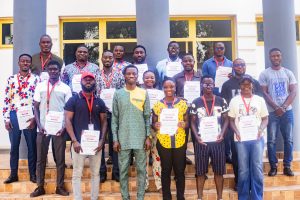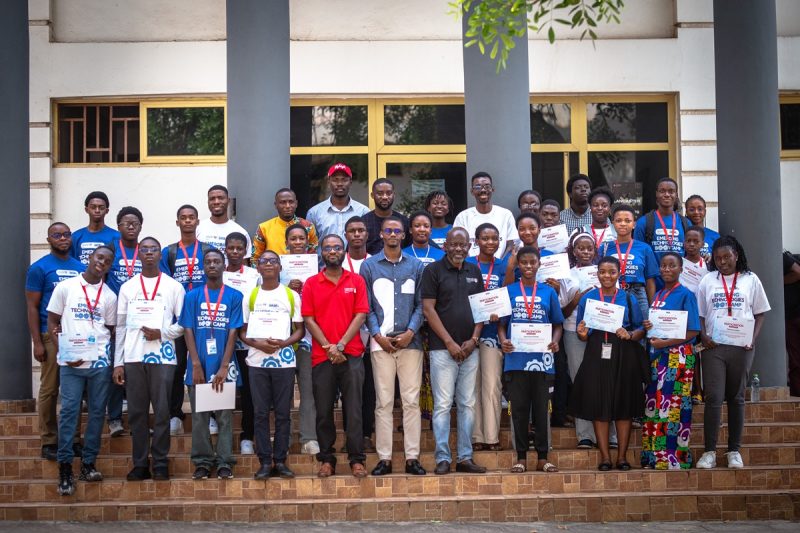Lancaster University Ghana (LUG) is driving innovation and digital literacy through its Emerging Technology Centre (ETC), a hub dedicated to research, teaching, and capacity building in cutting-edge fields such as Artificial Intelligence, Robotics, Blockchain, and the Internet of Things (IoT).
As part of its commitment to advancing ICT education, the ETC recently launched the Weekend Immersive Training Programme for ICT teachers from partner senior high schools. This initiative is part of LUG’s corporate social responsibility (CSR) efforts to strengthen ICT education in Ghana by equipping teachers with practical skills in modern technological fields.
The first cohort of the programme ran for five consecutive Saturdays (20th September – 18th October 2025), focusing on the module “Introduction to Programming using Python.” Twenty ICT teachers from seven partner senior high schools participated, with gender representation of 25% female and 75% male. The programme was designed to strengthen teachers’ capacity in programming and computational thinking, enabling them to plan, deliver, and assess coding lessons effectively. By integrating Python into their ICT curriculum, teachers are now better positioned to promote digital innovation and problem-solving among their students.
A pre-training survey revealed that many teachers had limited exposure to computer programming and expressed a strong interest in acquiring practical Python skills. Based on these findings, the module was designed to focus on foundational programming concepts, computational thinking, and practical classroom applications.
The training was delivered through interactive lectures, coding labs, and group discussions, emphasizing a hands-on approach to learning. Participants worked in teams on real-world Python projects such as a Student Grade Calculator and a Quiz Application for ICT Lessons. Over five weeks, teachers learned programming foundations, modular programming and data handling, object-oriented programming, debugging, and effective lesson planning with classroom practice and capstone projects.
Teachers reported significant growth in skills and confidence. They enhanced their ability to write, test, and debug Python programs, improved their computational thinking and problem-solving skills, gained technical competence with IDEs and debugging tools, and successfully integrated programming into the ICT curriculum. Participants also developed stronger teaching capacity, with effective lesson plans and active learning strategies, and are now confidently delivering engaging programming lessons to students.
The teachers expressed enthusiasm and appreciation for the training. William Ato Ansah from Presbyterian Boys’ High School said, “I will design my next lesson plan to include step-by-step problem-solving using computational thinking.” Geoffrey Ampomah Ofori of International Community School shared, “It’s a great experience; we’ve been introduced to concepts that make programming lessons fun and enjoyable for learners.” Sylvester Nii Adjei Adjetey from Ghana Christian International High School noted, “My students and I will do live coding and allow them to fix program errors themselves.” Angela Nyame-Tabiri of Presbyterian Boys’ Senior High School added, “I am highly motivated to ensure more practical work, allowing students to think critically and evaluate problems.”
Participating schools included MCS International School, International Community School (Accra), Aburi Girls’ Senior High School, British Columbia College, Datus International School, Ghana Christian High School, and Presbyterian Boys’ Senior High School, Legon.
Through initiatives like the Weekend Immersive Training Programme, Lancaster University Ghana’s ETC continues to empower educators, promote digital literacy, and inspire innovation, bridging the gap between academic learning and practical application in ICT education.




